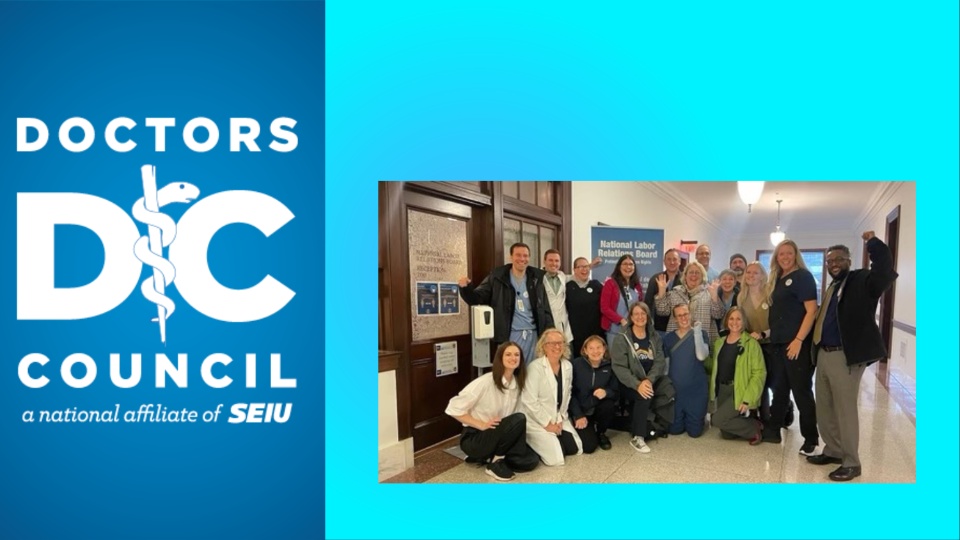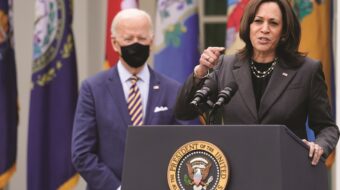
MINNEAPOLIS-ST. PAUL (PAI)—Increasing corporate control, reams of paperwork mandated by profits-before-people health insurers, and—ultimately—burnout are now forcing even private-sector physicians to unionize.
The Oct. 13 union recognition win, by a vote of 300 to 225, by the primary care doctors at Minnesota’s 60 Allina Health Care institutions statewide will, when certified by the National Labor Relations Board, bring some 589 physicians, urgent care doctors, nurse practitioners, and physicians into the Doctors Council, a Service Employees sector.
They’ll be the largest group of private MDs in the U.S. to unionize. Under other laws, doctors who work for public hospitals, clinics, and state health agencies unionize in many states. Overall, some 7% of physicians are unionized nationwide. Almost all are in the public sector.
Key issues in the organizing drive among the docs echo those by nurses’ unions, notably the National Nurses United, the main union for RNs and a strong nurses’ union in Minnesota.
“Allina clinicians complain of unrealistic productivity demands and increasing bureaucratic tasks that force them to churn through patients with few support staff,” the Minnesota Reformer said. The vote was first disclosed by Harvard University’s On Labor blog.
“One recent study found family medicine physicians spend more than half their time on paperwork—six hours out of their average 11-hour day. Allina clinicians say burnout is high, and a union will give them a collective voice to advocate for working conditions that will improve care for patients,” the Reformer added.
Both the paperwork and the burnout are due to pressure on Allina, and on other healthcare systems, by venal and greedy health insurers, who put profits before patients. They often deny care, even when MDs and RNs prove the need, to preserve their revenues and force hospitals—including Allina, which brought in $5 billion last year—to cut costs by cutting care.
Their demands are so drastic, Allina administrators claim that even after letting hundreds of workers go under pressure, the chain’s still running in the red. Which hasn’t prevented top bosses from paying themselves millions of dollars each, Minnesota Nurses Association/NNU previously disclosed.
The health insurers’ load on doctors is so high that slightly under half of all MDs in the U.S. are now in private practice, compared to 60% a decade ago. The share forced into working for chains, such as Allina, is now 52%, the American Medical Association reports. A decade ago, it was 26%.
For the Allina MDs and their colleagues, unionizing was the answer. “We ask that Allina accept our union. We’re ready to get to the bargaining table. We want to make health care better,” said Dr. Matt Hoffman, a family MD at a clinic north of St. Paul, told the Reformer. “Unionizing is viable. This is a start to fix health care.”
“We just won back a voice we felt we had lost,” Hastings, Minn., pediatrician Nick VenOsdel told the Minneapolis Star-Tribune. Doctors are frustrated, he said, by “the pileup” of insurers’ paperwork that takes time away from patients—and with no way to change it. He calls unionization “the beginning of broader changes” in health care to empower doctors and patients, not insurers.
We hope you appreciated this article. At People’s World, we believe news and information should be free and accessible to all, but we need your help. Our journalism is free of corporate influence and paywalls because we are totally reader-supported. Only you, our readers and supporters, make this possible. If you enjoy reading People’s World and the stories we bring you, please support our work by donating or becoming a monthly sustainer today. Thank you!












Comments